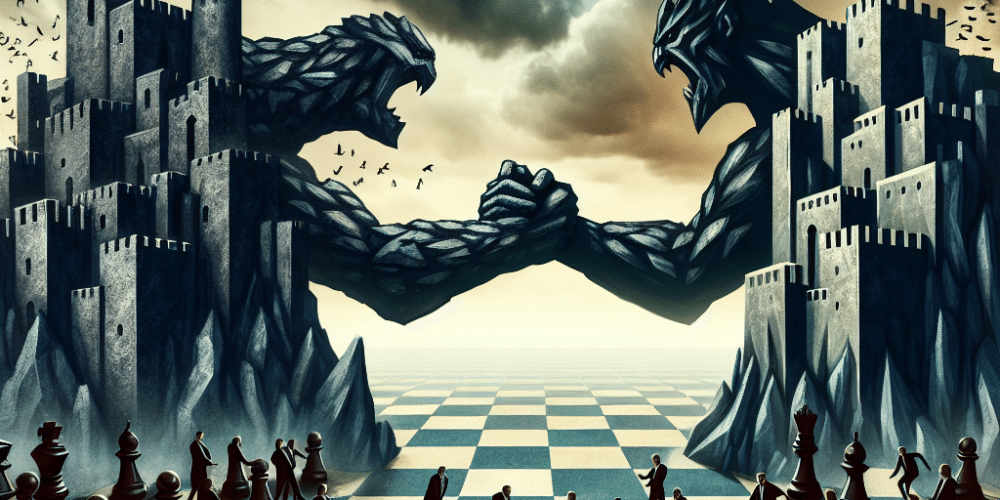Austrian gaming behemoth Novomatic AG has stretched its offer to purchase the remaining shares of Ainsworth Game Technology (AGT), now aiming for a deadline of December 3. This strategic move, confirmed by a filing with the Australian Securities Exchange, underscores Novomatic’s ongoing ambition to consolidate its influence over the Australian slot machine manufacturer.
Originally slated to expire on November 3, the unconditional off-market bid offers AUD 1.00 per share, assessing AGT at approximately AUD 158.6 million ($103.1 million). Ainsworth’s Independent Board Committee has advised shareholders to accept this offer, citing an independent expert’s conclusion that the proposal is “fair and reasonable” in the absence of superior offers before the revised deadline.
Over the course of 2024, Novomatic has incrementally tightened its grip on the company, increasing its ownership from 52.9% to about 61.5% since it disclosed its full acquisition intentions in April. Initially, Novomatic sought to execute the takeover through a Scheme of Arrangement. However, this effort was thwarted by a shareholder group led by Kjerulf Ainsworth, the son of the company’s founder, Len Ainsworth.
These internal disputes have compounded Ainsworth’s existing challenges, notably following the resignation of CEO Harald Neumann, formerly affiliated with Novomatic. Neumann departed after the Nevada Gaming Control Board advised against his US license application, linking him to a political funding investigation back in Austria. His exit at such a pivotal moment has heightened investor anxiety and uncertainty.
In stark contrast to the Independent Board Committee’s endorsement, there remains staunch resistance to the takeover. Kjerulf Ainsworth has made a limited counter-offensive with his own proportional takeover bid designed to increase his stake from 7.27% to 9.9%. His proposal of AUD 1.30 per share notably exceeds Novomatic’s offer, framed as a strategy to protect shareholder value and preserve Australian influence over the company’s trajectory.
In his communication to shareholders, Ainsworth clarified that his bid was not about seizing control but was a protest against what he perceives as an erosion of the company’s independence. While acknowledging regulatory restrictions that prevent him from owning more than 10% of the firm, Ainsworth has hinted at further actions if conditions are favorable.
Shareholders, he argued, deserve an alternative that better captures AGT’s genuine worth.
The clash between these competing offers has exposed the widening fissures within Ainsworth’s ownership, exacerbating its recent operational challenges. The company has been grappling with lackluster demand in its core markets and increasing competition from emerging gaming technology firms. While full incorporation with Novomatic could potentially stabilize operations, it also risks transferring control, strategic decision-making, and intellectual property away from Australian hands.
Yet, not everyone agrees with the sentiment that Novomatic’s full control would be entirely detrimental. Some industry analysts argue that aligning closely with a global leader like Novomatic could provide Ainsworth with the resources and scale needed to innovate and compete effectively against newer market entrants. The infusion of capital and expertise could potentially invigorate Ainsworth’s product development and expand its market reach.
On the other hand, critics worry that such a takeover could dilute the Australian heritage of Ainsworth Game Technology, a company that has been a significant player in the local gaming landscape. The fear is that decisions made in Vienna may not always align with the interests of Australian stakeholders or the market’s unique needs.
As December 3 approaches, the situation remains fluid, with both camps working to persuade shareholders of their respective visions for the future of Ainsworth Game Technology. The outcome of this corporate tug-of-war is likely to have significant ramifications not only for the company’s stakeholders but also for the broader Australian gaming industry, a sector currently navigating a landscape of rapid technological change and evolving regulatory environments.
The decision ultimately rests with the shareholders, who must weigh the immediate financial incentives against the long-term strategic implications of either staying under predominantly Australian control or opting for integration under Novomatic’s expansive global umbrella. As one observer noted, it’s a choice between preserving a piece of Australian gaming history and embracing the potential efficiencies and opportunities that come with being part of a larger international entity.

David Harrison stands tall in gambling journalism, marrying his firsthand casino experiences with a deep understanding of betting psychology. His articles transform complex gambling jargon into engaging tales of strategy and chance, making the world of betting accessible and enjoyable. David’s knack for narrative extends beyond print, making him a sought-after speaker on gambling trends and future bets. In the realm of gambling, David is both a scholar and a storyteller, captivating readers and listeners alike.
















